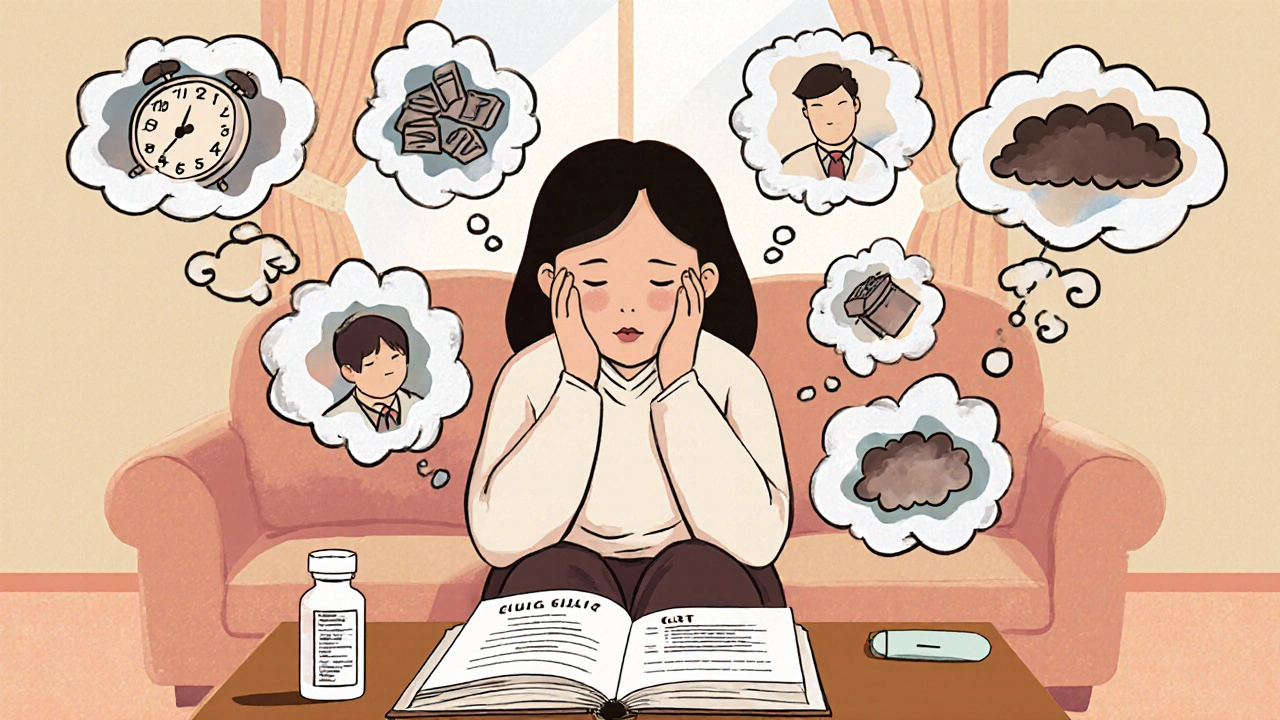SSRIs — What They Do and What to Expect
SSRIs (selective serotonin reuptake inhibitors) are a common group of antidepressants used for depression, anxiety disorders, OCD, panic attacks, and some other conditions. They raise serotonin levels in the brain to help mood and reduce anxiety. Most people notice mood improvements within 2–6 weeks, though some effects start earlier (sleep, appetite).
Common drugs and typical effects
Well-known SSRIs include fluoxetine (Prozac), sertraline (Zoloft), citalopram (Celexa), escitalopram (Lexapro), and paroxetine (Paxil). Doctors pick a specific SSRI based on symptoms, side effect profile, other medicines you take, and past response. If one SSRI doesn’t help or causes unacceptable side effects, switching to another is a standard approach.
Expected benefits: reduced low mood, less anxiety, fewer panic attacks, and calmer obsessive thoughts. It can take several tries to find the right drug and dose. Stick with a medication for at least 6–8 weeks unless side effects are severe.
Side effects, risks, and safety tips
Common side effects include nausea, headache, insomnia or drowsiness, dry mouth, and sexual problems (decreased libido or delayed orgasm). These often improve after a couple of weeks. Weight change can occur but varies between people.
Watch for serotonin syndrome if you combine SSRIs with other serotonergic drugs—symptoms include high fever, rapid heartbeat, confusion, and muscle stiffness. Call emergency services if this happens. Never start an SSRI with an MAOI or stop an MAOI and start an SSRI without at least a 2-week gap (longer with some drugs).
Stopping SSRIs suddenly can cause withdrawal-like symptoms: dizziness, electric shock sensations, irritability, and sleep trouble. To avoid this, taper gradually under your doctor’s plan.
Young people (under 25) may have a slightly higher risk of suicidal thoughts when starting antidepressants. Families should watch for worsening mood or unusual behavior and contact a clinician right away.
If you’re pregnant or breastfeeding, discuss risks and benefits with your provider—some SSRIs are safer than others, and untreated depression has its own risks.
Practical tips: take the pill at the same time daily, report bothersome side effects early, and keep follow-up visits (first check at 2–4 weeks helps adjust dose). Combine meds with therapy, sleep hygiene, regular exercise, and cutting back on alcohol for better results.
Buying meds online? Use a licensed pharmacy that requires a prescription. Avoid suspiciously cheap sites that don’t show pharmacy credentials. If you need help figuring out side effects, interactions, or tapering, your prescriber or pharmacist should be your first call.
SSRIs help many people, but they work best with close monitoring and clear communication with your healthcare team. If something feels wrong, speak up—small adjustments often fix things fast.


